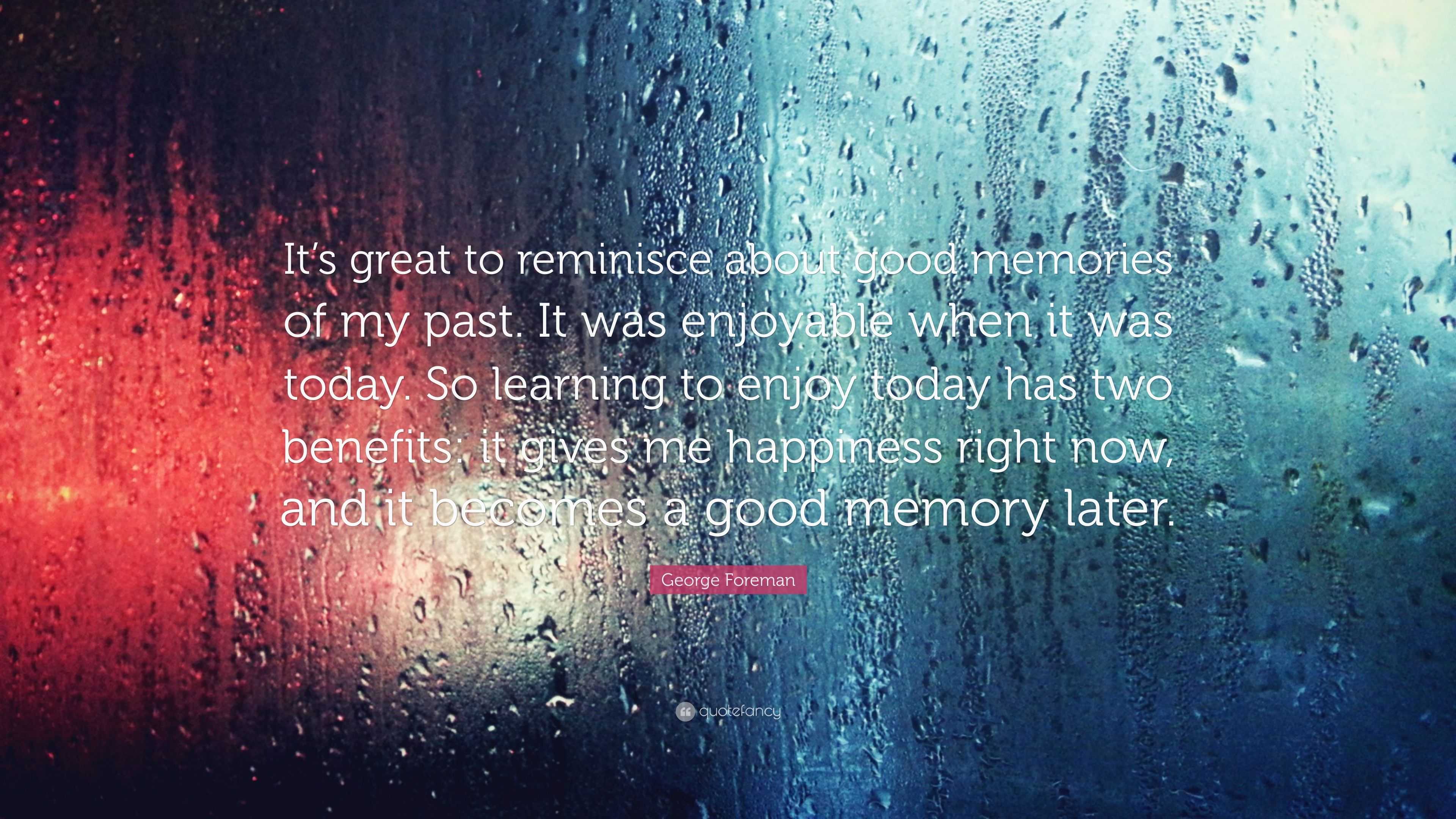
In instrumental reminiscence there is a focus on goals, plans, and methods for overcoming problems. Instrumental: You take the good, you take the bad It is usually a constructive way of looking at the past, in that it looks for meaningful things to pass along.Įngaging in transmissive reminiscing can lead to improvements in feelings of well-being. Transmissive reminiscence is done in the service of passing on values, lessons, and traditions, usually from older to younger generations. It relays biographical information and anecdotes, but doesn’t lead to greater understanding of self or others. Where obsessive and escapist types of reminiscence put a negative or positive interpretation on life events, narrative reminiscence is neutral and straightforwardly descriptive. It can serve as a coping mechanism for difficult events but is generally unhealthy. It is marked by boasting and exaggeration.


Instead of a tendency to dwell on the negative, there is focus on the good old days, and how wonderful they were in comparison to the present. The opposite side of obsessive reminiscence is escapist reminiscence. There is a failure to reframe or restructure the thinking about mistakes or missed opportunities in order to incorporate them into a meaningful view of life, where even the bad has played an important role. Obsessive reminiscence is focused on negative events from the past and feelings of guilt and bitterness. In the 1990s, psychologists Lisa Watt and Paul Wong developed a taxonomy of reminiscing that has been useful in research on how people relate to their life stories. Quality reminiscing involves some kind of effort at evaluation and finding meaning. Just remembering and telling stories doesn’t necessarily confer any benefits, and in some cases can even do harm. Training is required to administer these treatments, because not all reminiscing is the same.

Interventions like “life review therapy” or “reminiscence therapy” have been created to address the treatment of depression, dementia, trauma, and end-of-life care. Since then, there has been a huge growth in the study of reminiscence and its functions. The practice of spending time looking back on life “participates in the evolution of such characteristics as candor, serenity, and wisdom.”


 0 kommentar(er)
0 kommentar(er)
